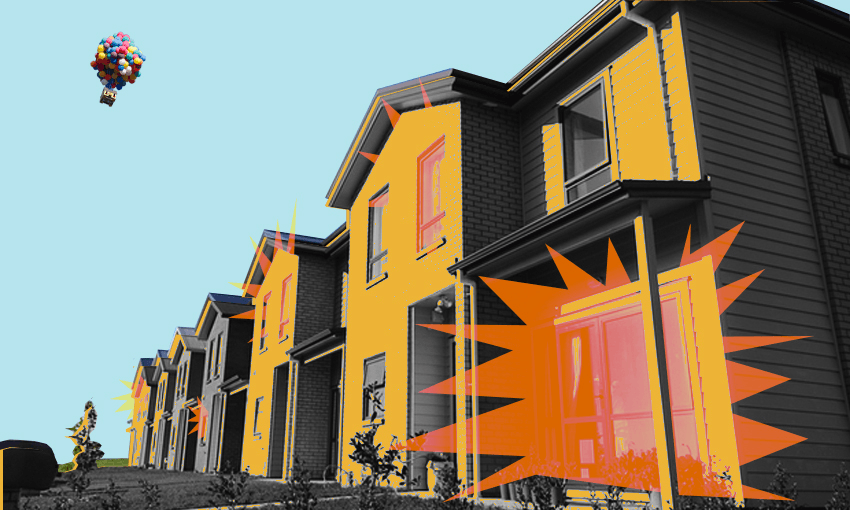An advert Word has it that the country's most reliable stream of tax-free earnings may be drying up. The situation is critical, writes Hayden Donnell.
Auckland's property market has been the subject of thousands of complaints over the years. Prospective homebuyers complain that “they have to save for 45 years to be able to afford a 20% deposit.” Tenants complain that they must “live in a plywood shack under a rich person's bathroom.” Derivative writers complain that they have been forced to "move to Christchurch”. Fortunately, through him, all real estate investors have continued to make millions of dollars in ever-increasing capital gains.
That is, until now. Earlier this week, RNZ aired a solemn warning that the country's most reliable stream of tax-free earnings may be drying up. Under the headline "The problem with Auckland's property market", he said the townhouse construction boom had been spreading a poisonous fog of affordability over Auckland's normally thermonuclear property sector. The story quotes a wide variety of people, from homeowners to real estate agents, and they all say the same thing: houses don't sell like they used to. Some might even be looking for, and you'll have to excuse me while I get seriously ill, bargains. This is not an empty threat. The situation is critical. It may soon reach the point where a rotting Gray Lynn bungalow can't be sold for $4.6 million.
Real estate investor Steve Goodey has seen the horrors firsthand. He recently bought a two-bedroom apartment in Epsom and says an “oversupply” of homes means buyers like him could be saving thousands of dollars. “Look at how many two-bedroom terraced houses there are in South Auckland, it's crazy. Developers are doing a lot of deals at the moment,” he told RNZ.
CoreLogic chief property economist Kelvin Davidson agreed that the influx of townhouses enabled by the 2016 Auckland Unitary Plan may be absorbing VAT cash from our investors' profits. “There has always been a perception that Auckland leads the rest of the country in terms of property market performance, and although the evidence shows that this is not always the case, it is certainly still quite surprising that our largest city is experiencing renewed weakness in housing market performance. prices. ," he said.
It's gotten to the point where, in the words of Peter Thompson, managing director of Barfoot and Thompson, potential buyers have "many more options and time to make the right decision."
Devastating. If this continues, Auckland may never become a city where home ownership is the exclusive domain of the rich. We may not even see the creation of a new landed nobility. People could do things like hang a picture on the wall or keep a pet without getting the owner's permission. Maybe they can find a place that suits their needs close to work. Some might even switch their commutes to public transportation or, God forbid, walking or cycling.
Just to hammer this point home, if housing is affordable we may see big reductions in sacred New Zealand traditions like homelessness or ram raids. People could spend less than 50% of their income on rent and spend it on goods and services. Some could invest in the productive economy. We may see fewer crowded garages or children going to the hospital for preventive respiratory illnesses. It's possible that if this problem really gets out of control, we won't see entire families living in cars anymore. You can imagine?
Fortunately, our elected representatives are figuring out how to stop the spread of this pest. them recently voted to prevent the legalization of dense housing along major public transportation corridors and near urban centers. Banning apartments near the train lines where we are spending $5.5 billion on improvements is a good start, but it is unlikely to be enough to completely rid us of the affordable housing infection. There is capacity left in the Unitary Plan for more construction, and with Housing Minister Chris Bishop still talking about allowing construction, property may remain stubbornly attainable.
Let's hope Auckland councilors and planners can make more use of their trademark magic. Our owners' God-given right to receive hundreds of thousands of dollars every few years for doing nothing and contributing little of value falls on their shoulders. Of course there may be some victims. Renters, the homeless and anyone making less than $200,000 could be affected. But like RNZ, I assume none of those nasty people are reading this article.



